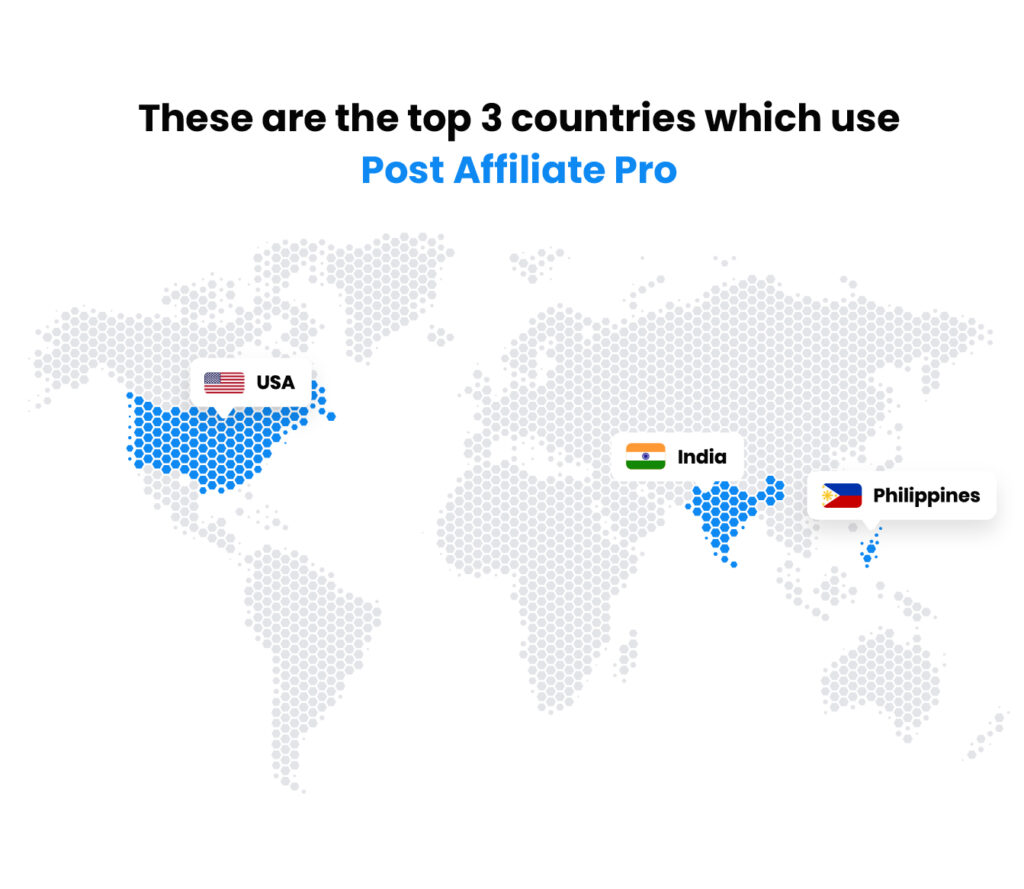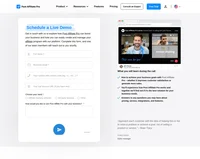What do you need to do to achieve success in the world of affiliate marketing? A great product and a solid affiliate strategy, but that’s not enough.
You need affiliates who will spread a good word about your products and convince others that they are worth trying out. If they are motivated enough, they can become the best spokespeople imaginable.
But if they are not (because they see no results coming from their work or they feel abandoned), then there’s a good chance they will leave you for a better affiliate program the first chance they get. And with a vast amount of competition in the affiliate market (in the US alone, there are around 11,400 programs), it might be difficult and tiresome for you to replace your affiliates continually.

What can you do to ensure your affiliates are loyal? Sure, paying commission fees that are worth their time is essential. But one of the best things you can do is build trust and positive relationships. With a positive atmosphere in your program, not only will you spend less time replacing disengaged affiliates, but the results of your program will also improve thanks to your affiliates feeling empowered.
How can you get started, though? We’ve put together some of the most valuable ideas on how you can show your affiliates that they aren’t just one of many hired people by you, but they are a part of your affiliate “family.”
Research your affiliates thoroughly
It should all start with learning as much as you can about your potential affiliates. Knowing the primary channel they operate on, their audience, ideas for promoting your content, and what type of content they use most often will help you find the right affiliates for your brand and build personal connections with them.
It might be tempting to skip this step and hire the first people who apply, hoping for the best. But unless you are tremendously lucky, most applications you receive will probably not be a good fit for your program. Some applicants might have unrealistic views of how affiliate marketing works (thanks to all the hype on the internet) and think that promoting a product to others is a piece of cake, but then drop out the moment they become disillusioned.
Others might have the experience and outreach but do not fit your brand’s goals. For example, if an applicant runs a very successful blog about gardening while you offer banking services, it’s unlikely that their audience will be interested in your products. In addition, it would be pretty tricky for the blogger to create good content centered around your products while still adhering to the central theme of their blog!
By being “picky” and vetting out applications, you can select only those affiliates who match your brand and its goals the most, as well as with whom it will be easier to build deeper connections.

Be transparent with your affiliates
The foundation of affiliate marketing is the trust of your audience. When it comes to building a relationship with your affiliates, trust is essential as well. If your affiliates don’t trust you, they don’t have many reasons to stick around. Meanwhile, being clear and transparent with your affiliates from the start helps avoid misunderstandings and shows you as a dependable employer.
An excellent way to build that trust is by handing your new affiliates a manual to tell them everything they might want to know about your program. For example, the manual should list all information about your brand and products and your commission systems, expectations, T&Cs of the program, and activities that are not allowed (such as paid ads).
This kind of manual is great for onboarding. Your affiliates will have all the information they need in one place. Moreover, they can quickly check the manual if they need to know, for example, what the guidelines for creating visuals are or when commission is paid. And you won’t need to answer the same questions over and over again either!
Talk with your affiliates regularly
While affiliates are pretty used to working independently, that doesn’t mean you can just bring in new ones and leave them entirely to their own devices. They will have suggestions, ideas, issues, or questions, and if they feel ignored or left alone, they might abandon the program without even telling you why.
It might be worth creating a team chat to maintain regular communication between you and your affiliates, as that will allow them to reach out to each other quickly. It’s also worth thinking about having a unique email newsletter for your affiliates through which you can share product updates, inform about new campaigns, and share new creatives or affiliate tips.
Besides having a way to contact the entire team, you should also think about how you will keep in touch with affiliates one-on-one. Here you need to keep in mind that each affiliate will have a preferred method of communication – some might prefer email. A talk through live chat will be better for others, and some might want to see you on Skype or Zoom.

Ask for feedback
You know the saying, “there’s always room for improvement.” You might be thinking that everything in your affiliate program is working well when in reality, your affiliates are struggling with some of their tasks or have suggestions about how you could make their work easier. But for the majority of your affiliates, reaching out to say that something isn’t working might be pretty embarrassing.
Holding regular surveys or questionnaires so that your affiliates can honestly say what is working in the program and what issues need to be addressed can help you spot any problems your affiliates currently have.
What’s more, letting your affiliates “shape” their work and the affiliate program shows them that you value and trust their opinions and are ready to hear their ideas, as long as you act on the feedback you receive.
Personalize
The last thing you can do to make your affiliates feel like part of a team is to personalize your interactions with them. Since you should have already gotten to know them earlier, you will know what niche they are in or what type of content they mostly use. How about using that knowledge to make your affiliates feel valued by sending them unique creatives, for example?
First, you should segment your affiliates into groups based on their niche, promotional method, or the product they are promoting. That way, you can send each affiliate only those resources and offers relevant to their needs. For instance, send one newsletter to bloggers and another to social media influencers with a tailored offer for each group.
Another great way to motivate your affiliates is to provide them with custom-made banners, graphics, landing pages, or pre-written content. Not only does that save a lot of time they would otherwise spend on making the creatives themselves, but it also shows you are as interested in their success.
Conclusion
Building stable, long-lasting relationships with your affiliates will take work and time – it’s more of a marathon rather than a sprint. But there’s a lot of ways in which you can slowly build the trust and loyalty of your affiliates, starting by simply learning more about them. Then, by giving them the tools and resources they need to succeed, you will be well on your way to building a positive and productive environment that inspires your affiliates to perform.
Share this article
Affiliate marketing email templates
Discover expertly crafted email templates for affiliate marketing with Post Affiliate Pro. Enhance your communication by motivating, acknowledging, and engaging affiliates effectively. From terms and conditions to product launches, these templates ensure clear and consistent messaging to boost your affiliate program's success. Visit now to streamline your affiliate communication!
How To Find Affiliates to Sell Your Products
Discover over 10 successful strategies for finding high-quality affiliates in 2024 to boost your product sales. Learn to leverage influencers, join affiliate networks, and enhance your reach through SEO and social media. Maximize revenue with transparency and ongoing monitoring in your affiliate marketing program.
9 affiliate marketing tools that’ll help you run your affiliate program
Discover 9 essential tools to supercharge your affiliate marketing program! From visual content creation with Visme to comprehensive management with Post Affiliate Pro and audience insights via Smartlook, these tools will boost your sales and refine your strategy. Dive in to maximize your affiliate success!
The leader in Affiliate software
Post Affiliate Pro offers a comprehensive affiliate software platform to manage multiple affiliate programs with ease. Enjoy no setup fees, 24/7 customer support, and a free 1-month trial. Ideal for small and large businesses, it features precise tracking, automated workflows, and customizable tools to boost your affiliate marketing success. Try it now and streamline your affiliate operations effortlessly!
How to keep your affiliates happy with split commissions
Discover how Post Affiliate Pro's SplitCommission™ feature can boost affiliate motivation and engagement by fairly distributing commissions among all contributors to a sale. Learn how to implement this innovative model to enhance your affiliate program's success.











